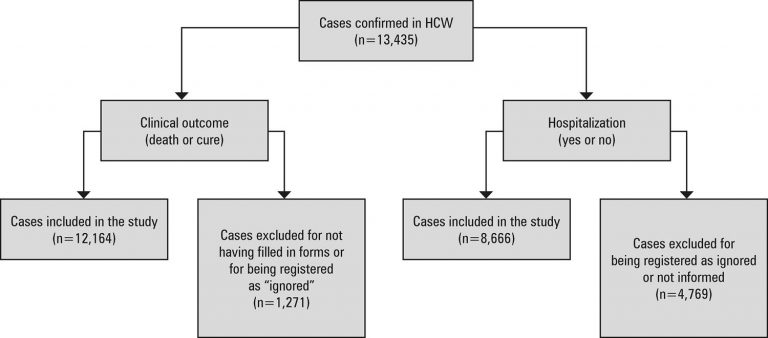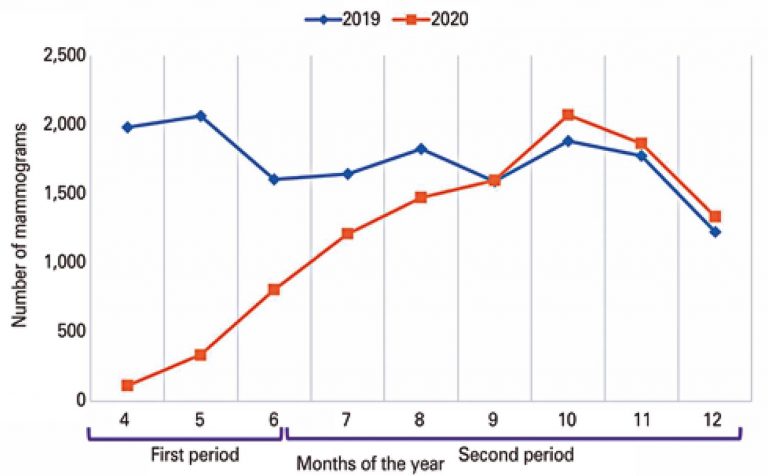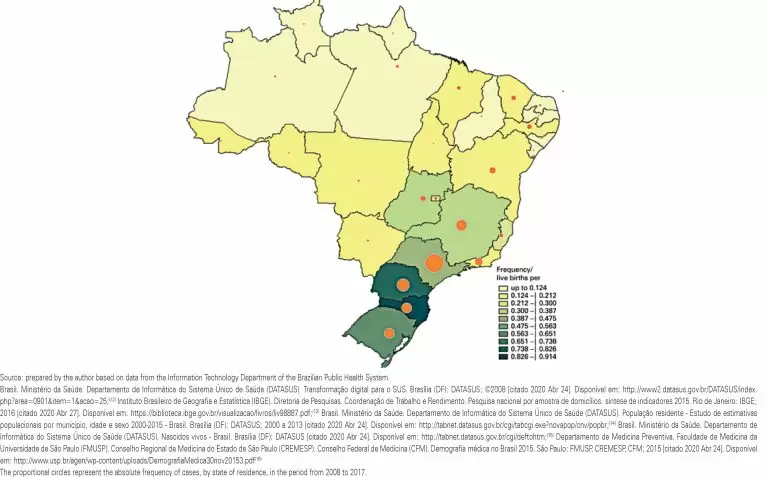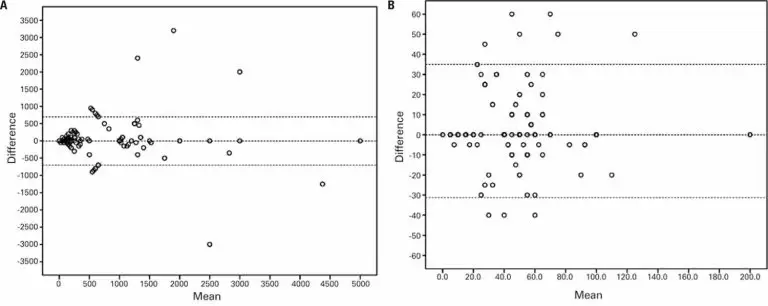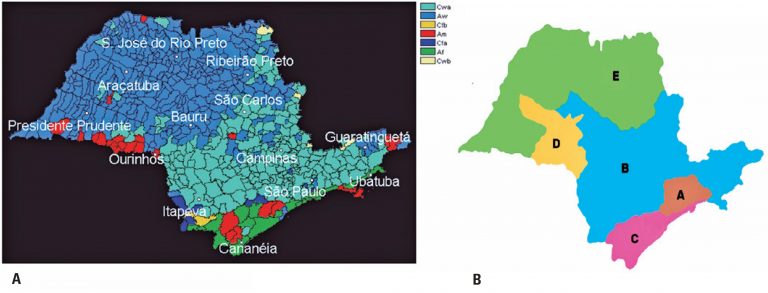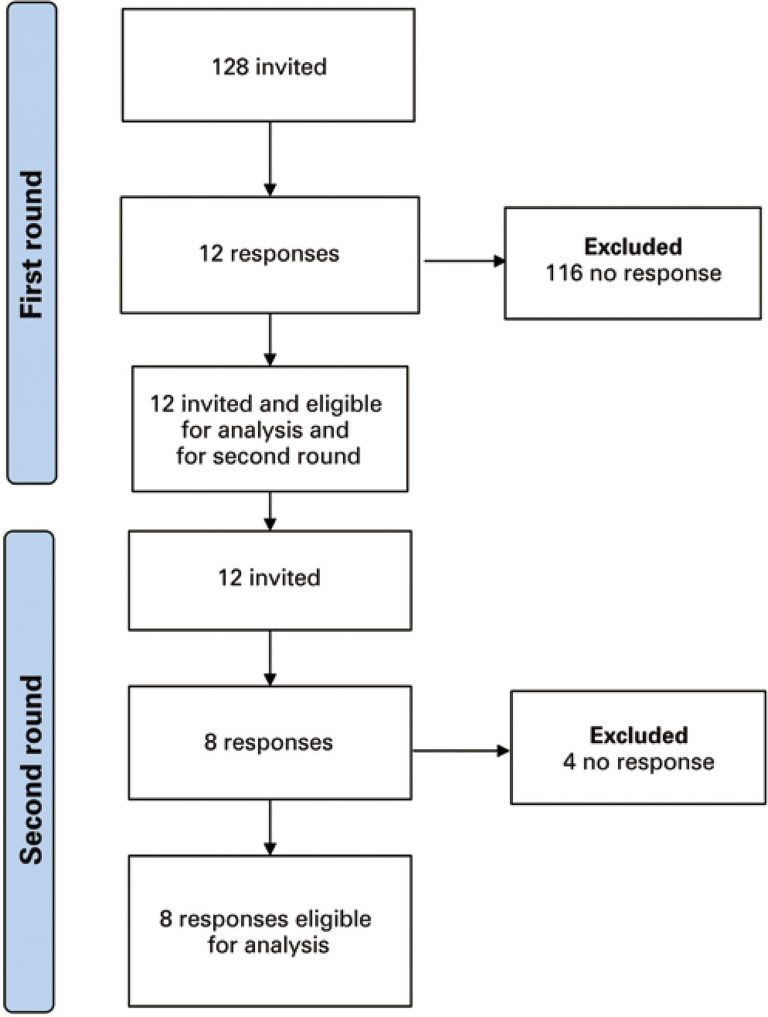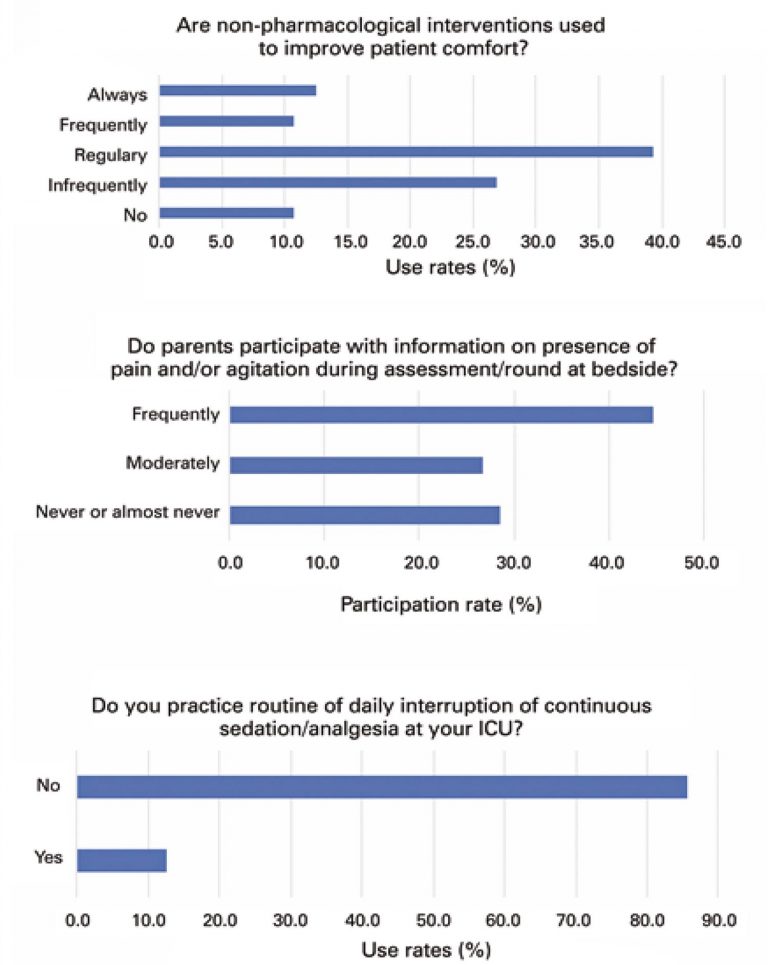04/Mar/2022
COVID-19 in healthcare workers in the state of Espírito Santo, Brazil: clinical and sociodemographic characteristics associated with death and hospitalization
DOI: 10.31744/einstein_journal/2022AO6241
ABSTRACT Objective To analyze clinical and sociodemographic characteristics associated with death and hospitalization of healthcare workers due to COVID-19, in addition to calculating the incidence rates per profession. Methods A cross-sectional observational study using secondary open data from the State Health Department of Espírito Santo (ES), Brazil. The cases of COVID-19 in healthcare workers were recorded between February 27 and August 17, 2020, in Espírito Santo, excluding cases with missing information. Results Of the confirmed cases, 75.6% (n=9,191) were female. […]
Keywords: Brazil; Coronavirus infections; COVID-19; Epidemiology; Health personnel; Occupational Health; SARS-CoV-2
15/Dec/2021
The delay of breast cancer diagnosis during the COVID-19 pandemic in São Paulo, Brazil
DOI: 10.31744/einstein_journal/2021AO6721
ABSTRACT Objective To evaluate the impact of COVID-19 pandemic on breast cancer diagnosis in a breast imaging center. Methods This was a retrospective cohort study that included women submitted to breast exams and procedures in a private hospital in São Paulo, SP, Brazil, as from the period of most strict social isolation measures, in 2020 (separated in first period of social isolation, March 24 to June 21, 2020, and second period, June 22 to December 31, 2020), as compared to […]
Keywords: Brazil; Breast cancer screening; Breast neoplasms; Coronavirus infections; Early detection of cancer; Magnetic resonance spectroscopy; Mammography; Prognosis; Ultrasonography, mammary
25/Nov/2021
Epidemiology and costs of surgical treatment of developmental dysplasia of hip in the Brazilian Public Health System in a decade
einstein (São Paulo). 25/Nov/2021;19:eGS5625.
View Article25/Nov/2021
Epidemiology and costs of surgical treatment of developmental dysplasia of hip in the Brazilian Public Health System in a decade
DOI: 10.31744/einstein_journal/2021GS5625
ABSTRACT Objective: To describe and analyze the epidemiology and costs of surgical treatment of hip dysplasia in the Brazilian Public Health System. Methods: An ecological analytical study that evaluated a time series and the geographic distribution of surgical treatment of hip dysplasia in Brazil. Frequencies of cases, number of cases and associated factors were analyzed. Correlations, frequency maps and flow maps are presented and discussed. Results: During the study, 14,584 patients with dysplasia were admitted to hospitals according to Information […]
Keywords: Brazil; Costs and cost analysis; Developmental dysplasia of the hip; Prevalence; Spatial Analysis; Time Series Studies; Unified Health System
29/Sep/2021
Willingness to pay for short- and long-acting contraceptives among female adolescents and their parents in Brazil:a pilot study
DOI: 10.31744/einstein_journal/2021AO6376
ABSTRACT Objective To evaluate willingness to pay for short- and long-acting reversible contraceptive methods among female Brazilian adolescents and their parents, as well as their perspective on using such methods. Methods This is a cross-sectional study of female adolescents aged 13 to 19 years and their parents. We surveyed to estimate their willingness to pay for contraceptive methods. The values are expressed as mean±standard deviation in Brazilian reals (R$). Spearman correlation was employed for socioeconomic status of parents, age of […]
Keywords: Adolescent; Brazil; Contraception; Long-acting reversible contraception
05/Mar/2021
Testicular torsion and climate changes in macroregions of São Paulo, Brazil
DOI: 10.31744/einstein_journal/2021AO5472
ABSTRACT Objective: To analyze the association between climate changes in the macroregions in the state of São Paulo and testicular torsion treated cases. Methods: The cases were selected in the Brazilian Public Health Data System Database from January 2008 to November 2016. All surgical procedure records were identified by the Hospital Admission Authorization document. Two codes were selected to process the search: testicular torsion (surgical cure code) and acute scrotum (exploratory scrototomy code). The macroregions were grouped in five areas […]
Keywords: Brazil; Climate change; Scrotum; Spermatic cord torsion
08/May/2020
High prevalence of syphilis in a female prison unit in Northeastern Brazil
DOI: 10.31744/einstein_journal/2020AO4978
ABSTRACT Objective To determine the prevalence of syphilis and the associated risk factors in a female prison unit. Methods This was a cross-sectional study including 113 women whom data were collected in two stages: first, blood test to check for syphilis seropositivity; and then collection of information through a form to assess risk situations for sexually transmitted infections. Results Overall, syphilis prevalence was found to be 22.1% among the female prison population (n=25) and 28.6% among pregnant women. A statistically […]
Keywords: Brazil; Infections; Prisoners; Prisons; Sexually transmitted diseases; Syphilis/epidemiology; Women; Women’s health
23/Jan/2020
Linguistic and cultural adaptation to the Portuguese language of antimicrobial dose adjustment software
DOI: 10.31744/einstein_journal/2020AO5023
ABSTRACT Objective To adapt an antibiotic dose adjustment software initially developed in English, to Portuguese and to the Brazilian context. Methods This was an observational, descriptive study in which the Delphi method was used to establish consensus among specialists from different health areas, with questions addressing the visual and operational aspects of the software. In a second stage, a pilot experimental study was performed with the random comparison of patients for evaluation and adaptation of the software in the real […]
Keywords: Anti-infective agents; Brazil; Dosage forms; Intensive care units; Piperacillin; Software; Surveys and questionnaires
22/Jan/2020
Practices related to assessment of sedation, analgesia and delirium among critical care pediatricians in Brazil
DOI: 10.31744/einstein_journal/2020AO5168
ABSTRACT Objective To understand the use of tools, protocols and comfort measures related to sedation/analgesia, and to screen the occurrence of delirium in pediatric intensive care units. Methods A survey with 14 questions was distributed by e-mail to Brazilian critical care pediatricians. Eight questions addressed physician and hospital demographics, and six inquired practices to assess sedation, analgesia, and delirium in pediatric intensive care units. Results Of 373 questionnaires sent, 61 were answered (16.3%). The majority of physicians were practicing in […]
Keywords: Analgesia; Brazil; Child; Critical care; Deep sedation; Delirium; Surveys and questionnaires
02/May/2019
Attitudes Toward Lesbians and Gay Men Scale: validation in Brazilian physicians
einstein (São Paulo). 02/May/2019;17(2):eAO4527.
View Article02/May/2019
Attitudes Toward Lesbians and Gay Men Scale: validation in Brazilian physicians
DOI: 10.31744/einstein_journal/2019AO4527
ABSTRACT Objective: To perform the cross-cultural adaptation of the original North American version of the Attitudes Toward Lesbians and Gay Men Scale (ATLG) for use in Brazil, and to evaluate the psychometric properties of the adapted instrument in a sample of Brazilian heterosexual physicians. Methods: Stages of cross-cultural adaptation were as follows: translation by two independent evaluators, translation synthesis, evaluation by the target population for semantic equivalence, pilot study with 42 physicians, and final instrument preparation involving 224 heterosexual physicians […]
Keywords: Brazil; Factor analysis, statistical; Homosexuality; Physicians; Prejudice; Psychometrics; Translating
01/Feb/2019
Evaluation of the quality of Primary Health Care services for children: reflections on the feasibility of using the Brazilian version of the Primary Care Assessment Tool as a routine assessment tool
einstein (São Paulo). 01/Feb/2019;17(1):eAO4333.
View Article01/Feb/2019
Evaluation of the quality of Primary Health Care services for children: reflections on the feasibility of using the Brazilian version of the Primary Care Assessment Tool as a routine assessment tool
DOI: 10.31744/einstein_journal/2019AO4333
ABSTRACT Objective To assess the quality of the Primary Health Care services provided to children and the feasibility of using the Brazilian version of Primary Care Assessment Tool (PCAT-Brazil) as a routine quality assessment tool. Methods A cross-sectional study was carried out in Joanópolis, a small rural town in the State of São Paulo (SP), Brazil. Seven health professionals and 502 caretakers of children using the public health center were interviewed using the PCAT-Brazil, collecting data on the core and […]
Keywords: Brazil; Child; Primary Health Care; Quality of Health Care


